Essential Nutrients For A Healthy Scalp| Incorporating Antioxidant-rich Foods Into Your Diet| Including Probiotics In Your Diet For Scalp Health| Anti-inflammatory Foods For Reducing Dandruff And Sores| Foods To Avoid For A Healthy Scalp| Meal Plan And Recipes For A Scalp-healthy Diet| Other Lifestyle Factors That Support A Healthy Scalp| Nutritious Food And Care For Dandruff|
Nutritious food options for preventing dandruff or sores include salmon, tuna fish, peanut butter, flaxseeds, extra virgin olive oil, canola oil, avocado, walnuts, and fortified eggs, which are rich in healthy fats. Adding coconut oil to your diet may improve dandruff as it is commonly used as a home remedy.
In addition to these dietary changes, using baking soda, probiotics, or coconut oil topically can help reduce dandruff naturally. Poor nutrition can lead to dry skin, hair loss, and dandruff, while foods high in bad fats like chocolate and dairy can worsen oil production and exacerbate dandruff.
Including foods rich in vitamin B, green vegetables, protein, and grains can also help combat dandruff.
Understanding The Connection Between Nutrition And Dandruff/sores
When it comes to maintaining a healthy scalp, we often focus on external factors like shampoo and conditioner. However, the truth is that our diet plays a crucial role in the overall health of our scalp. Nutritional deficiencies can contribute to common scalp issues, such as dandruff and sores. In this article, we’ll explore the impact of diet on scalp health and delve into the common nutritional deficiencies that can worsen dandruff and sores.
Impact Of Diet On Scalp Health
Our diet directly affects our scalp health. When we consume nutrient-rich foods, our bodies receive the essential vitamins and minerals needed for optimal scalp function. On the other hand, a diet lacking in key nutrients can lead to dryness, itchiness, and inflammation on the scalp, contributing to the development of dandruff and sores.
Common Nutritional Deficiencies That Contribute To Dandruff And Sores
Several nutritional deficiencies can exacerbate dandruff and sores on the scalp. It is important to address these deficiencies to promote a healthy scalp:
- Vitamin B: A deficiency in vitamin B can actually cause dandruff. Including foods rich in vitamin B, such as green vegetables, protein, and grains, can help combat this deficiency and improve scalp health.
- Healthy Fats: Incorporating foods rich in healthy fats can benefit the scalp. Salmon, tuna fish, peanut butter, flaxseeds, extra virgin olive oil, canola oil, avocado, walnuts, and fortified eggs are all excellent options for obtaining these essential fats.
Additionally, avoiding consumption of bad fats like those found in chocolate and dairy can help reduce oil production on the scalp, which can aggravate dandruff.
While coconut oil is often used topically as a dandruff remedy, adding it to your diet may also provide benefits. However, it’s important to note that individual results may vary.
By addressing these common nutritional deficiencies and incorporating nutrient-rich foods into our diet, we can improve scalp health and minimize the occurrence of dandruff and sores. Taking care of our body from the inside out is the key to maintaining a healthy scalp.
Essential Nutrients For A Healthy Scalp
When it comes to maintaining a healthy scalp, incorporating the right nutrients into your diet is key. Certain vitamins and minerals play a crucial role in promoting scalp health and preventing conditions like dandruff and sores. In this article, we will discuss four essential nutrients that can help you achieve a healthy scalp: Vitamin A, Omega-3 fatty acids, B vitamins, and Zinc.
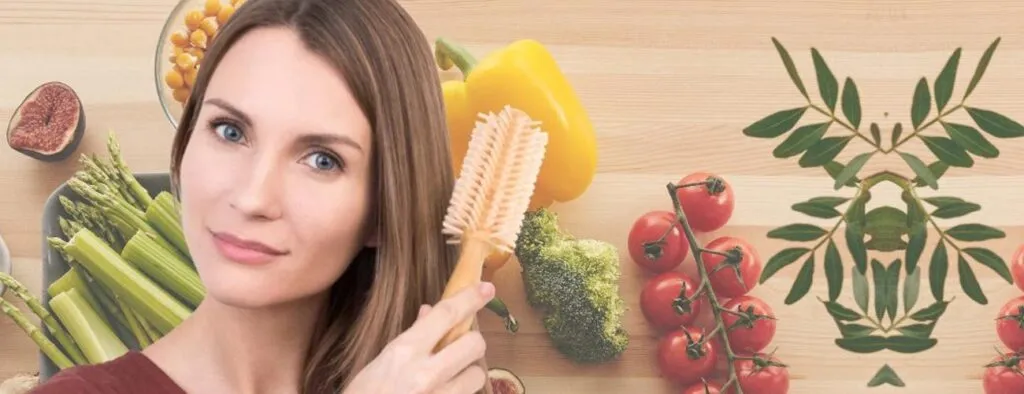
Vitamin A And Its Role In Scalp Health
Vitamin A is a powerful antioxidant that plays a vital role in maintaining a healthy scalp. It helps in the production of sebum, a natural oil that moisturizes the scalp and prevents dryness. Additionally, Vitamin A promotes the growth of healthy hair follicles, reducing the chances of hair loss and dandruff. To incorporate more Vitamin A into your diet, include foods such as carrots, sweet potatoes, spinach, and liver.
Omega-3 Fatty Acids For Reducing Inflammation And Promoting Scalp Health
Omega-3 fatty acids are well-known for their anti-inflammatory properties, which can help reduce scalp inflammation and soothe conditions like dandruff and sores. These essential fatty acids also promote overall scalp health by nourishing the hair follicles and keeping the scalp hydrated. Incorporate foods rich in Omega-3 fatty acids, such as salmon, tuna fish, flaxseeds, and walnuts, into your diet for a healthy scalp.
B Vitamins For Maintaining A Healthy Scalp And Hair
B vitamins play a crucial role in maintaining a healthy scalp and hair. Vitamin B3, also known as niacin, improves blood circulation to the scalp, promoting hair growth and preventing dandruff. Vitamin B6 regulates sebum production, preventing excessive oiliness or dryness of the scalp. Biotin, another B vitamin, strengthens hair follicles and reduces hair loss. Include foods like green vegetables, whole grains, eggs, and nuts to ensure you are getting an adequate amount of B vitamins for a healthy scalp.
Zinc And Its Role In Preventing Dandruff And Sores
Zinc is an essential mineral that plays a crucial role in preventing dandruff and sores on the scalp. It helps regulate oil production, keeping the scalp moisturized and preventing dryness. Zinc also has antimicrobial properties, inhibiting the growth of fungi and bacteria that can contribute to dandruff. Foods rich in zinc include oysters, beef, pumpkin seeds, and fortified cereals. Incorporating these foods into your diet can help ensure you have sufficient zinc for a healthy scalp.
Incorporating Antioxidant-rich Foods Into Your Diet
When it comes to combating dandruff and sores, incorporating antioxidant-rich foods into your diet can make a significant difference. Antioxidants are known for their ability to fight off harmful free radicals in the body, which can damage cells and contribute to various skin conditions, including dandruff and sores. By including top antioxidant-rich foods in your daily meals, you can promote a healthy scalp and alleviate these bothersome issues.

The Importance Of Antioxidants In Combating Dandruff And Sores
Antioxidants play a crucial role in maintaining a healthy scalp and preventing dandruff and sores. They help protect the skin from oxidative stress caused by free radicals, which can lead to inflammation, dryness, and flakiness on the scalp. Additionally, antioxidants support the immune system and reduce the risk of infections that can further exacerbate these conditions.
Top Antioxidant-rich Foods For A Healthy Scalp
By incorporating these antioxidant-rich foods into your diet, you can nourish your scalp and manage dandruff and sores effectively:
- Salmon: Rich in omega-3 fatty acids, salmon provides essential nutrients that promote scalp health and combat inflammation.
- Blueberries: Packed with antioxidants, blueberries help neutralize oxidative stress and maintain proper blood flow to the scalp.
- Spinach: Loaded with vitamins A and C, spinach supports the production of sebum, a natural oil that moisturizes the scalp.
- Green tea: Known for its high concentration of antioxidants, green tea helps reduce scalp inflammation and soothe irritation.
- Oranges: Bursting with vitamin C, oranges boost collagen production in the scalp, promoting healthy skin and hair growth.
Additionally, incorporating other antioxidant-rich foods such as nuts, seeds, dark chocolate, and colorful vegetables can further enhance the health of your scalp and reduce dandruff and sores.
Including Probiotics In Your Diet For Scalp Health
The health of your gut and your scalp are more interconnected than you might think. Research has shown that there is a connection between gut health and scalp health. This means that by improving your gut health, you can also promote a healthy scalp and potentially reduce common scalp issues like dandruff and sores. One way to enhance your gut health is by incorporating probiotics into your diet.

Connection Between Gut Health And Scalp Health
Did you know that your gut is home to trillions of bacteria, both good and bad? These bacteria play a significant role in maintaining the health of your digestive system and also impact other areas of your body, including your skin and scalp. When the balance of bacteria in your gut is disrupted, it can lead to inflammation, which may manifest as dandruff or sores on your scalp.
Probiotic-rich Foods To Promote A Healthy Scalp
A simple and natural way to introduce more beneficial bacteria into your gut is by consuming probiotic-rich foods. Probiotics are live bacteria that are beneficial for your digestive system and can positively influence your scalp health. Here are some probiotic-rich foods you can include in your diet to promote a healthy scalp:
| Probiotic Food | Benefits |
|---|---|
| Yogurt | Contains live cultures of beneficial bacteria that can improve gut health and potentially reduce scalp issues. |
| Sauerkraut | A fermented cabbage dish that is rich in probiotics and can help balance gut bacteria. |
| Kimchi | A Korean fermented vegetable dish that contains probiotics and can support a healthy scalp. |
| Kefir | A fermented milk drink that is packed with probiotics and can contribute to a healthier scalp. |
| Miso | A traditional Japanese seasoning made from fermented soybeans that can improve gut health and potentially alleviate scalp issues. |
Incorporating these probiotic-rich foods into your diet can help improve the balance of bacteria in your gut and promote a healthier scalp. It’s important to remember that consistency is key, as it may take some time for these changes to have a noticeable impact on your scalp health.
So, if you’re looking to address dandruff or sores on your scalp, consider including probiotic-rich foods in your diet. By nurturing your gut health, you’re taking a proactive approach towards promoting a healthier scalp and overall well-being.
Anti-inflammatory Foods For Reducing Dandruff And Sores
Include nutritious foods such as salmon, tuna fish, peanut butter, flaxseeds, extra virgin olive oil, canola oil, avocado, walnuts, and fortified eggs in your diet to potentially reduce dandruff and sores. Adding coconut oil to your diet may also improve dandruff.
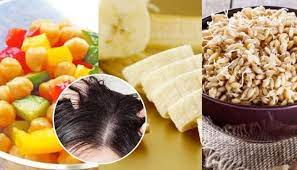
Consider incorporating foods with vitamin B and good oils like green vegetables, protein, and grains to maintain a healthy scalp.
The Role Of Inflammation In Scalp Conditions
Many scalp conditions, such as dandruff and sores, are often the result of inflammation. Inflammation is the body’s response to foreign substances or injury, and it plays a significant role in the development and severity of these scalp conditions. When the scalp becomes inflamed, it can lead to itching, redness, flaking, and even sores. By incorporating anti-inflammatory foods into your diet, you can help reduce inflammation and alleviate symptoms associated with dandruff and sores.
Foods With Anti-inflammatory Properties For Scalp Health
Eating a diet rich in anti-inflammatory foods not only promotes overall health but also contributes to a healthy scalp. Here are some delicious options to consider:
| Food | Anti-Inflammatory Properties |
|---|---|
| Salmon | Rich in omega-3 fatty acids, which have potent anti-inflammatory effects. |
| Tuna fish | Contains omega-3 fatty acids that can help to reduce inflammation. |
| Peanut butter | Contains monounsaturated fats and antioxidants that can help combat inflammation. |
| Flaxseeds | High in omega-3 fatty acids and lignans, which have anti-inflammatory properties. |
| Extra virgin olive oil | Contains polyphenols that can help reduce inflammation. |
| Canola oil | Rich in omega-3 fatty acids, which are known for their anti-inflammatory benefits. |
| Avocado | Packed with monounsaturated fats and antioxidants, which can help alleviate inflammation. |
| Walnuts | Contain omega-3 fatty acids and antioxidants that have anti-inflammatory effects. |
| Fortified eggs | Rich in omega-3 fatty acids and vitamins, which can support scalp health and reduce inflammation. |
Adding these foods to your diet can help nourish your scalp, reduce inflammation, and ultimately improve the health of your hair and scalp. Remember to consult with a healthcare professional or nutritionist before making any significant changes to your diet.
Foods To Avoid For A Healthy Scalp
When it comes to maintaining a healthy scalp and combating dandruff or sores, the role of nutrition cannot be overlooked. Certain foods can exacerbate these conditions, making it important to identify and eliminate them from your diet. By avoiding trigger foods, you can help promote a healthier scalp and reduce the occurrence of dandruff and sores. Let’s take a closer look at the foods you should steer clear of:
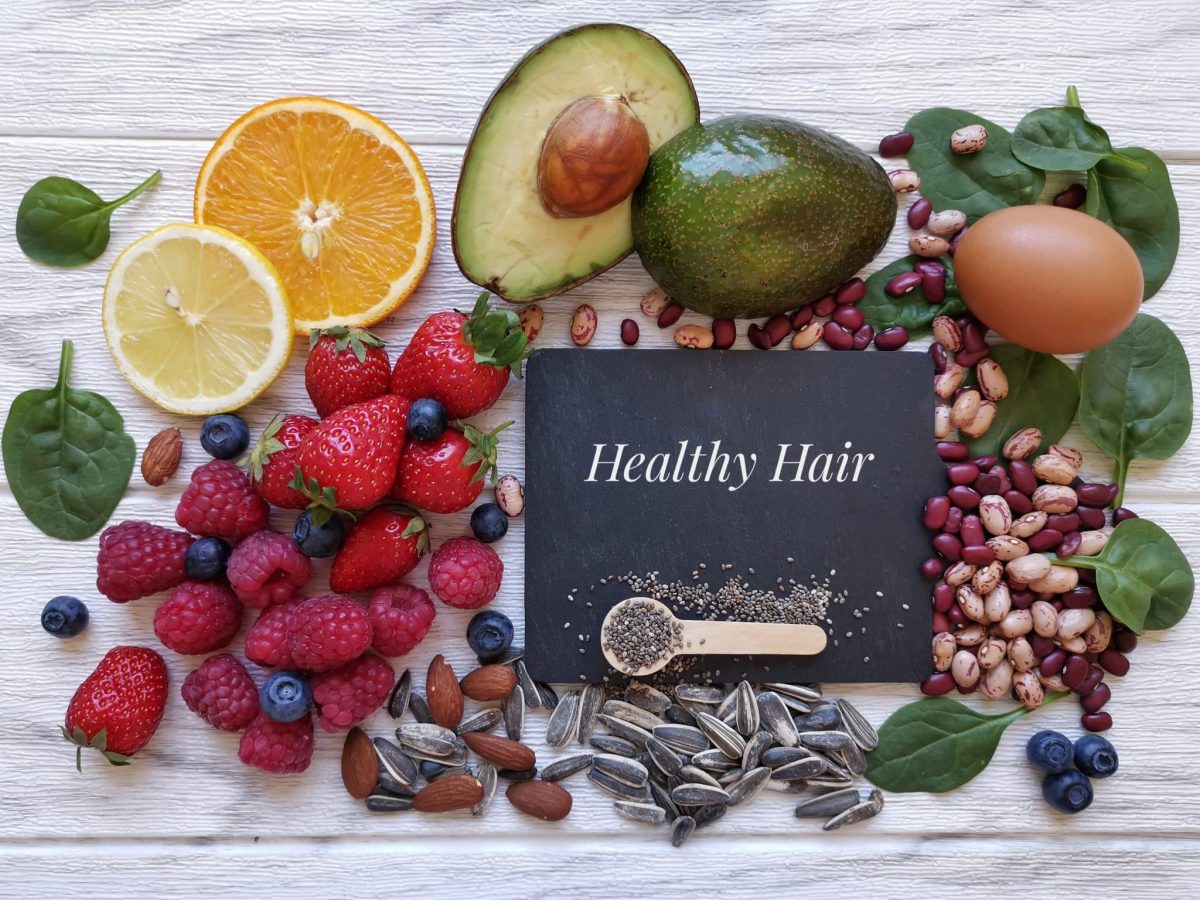
Trigger Foods That Can Exacerbate Dandruff And Sores
1. Processed and fatty foods: Consuming a diet high in processed and fatty foods can lead to increased oil production on the scalp, which in turn can worsen dandruff. Limit your intake of fried foods, fast food, and processed snacks.
2. Sugary foods and beverages: Excessive sugar consumption can cause inflammation and disrupt the natural balance of the scalp. It is best to reduce your intake of sugary treats, sodas, and sweetened beverages.
3. Dairy products: While dairy doesn’t directly cause dandruff, for some individuals, it can trigger or worsen existing scalp conditions. Consider reducing or eliminating dairy products like milk, cheese, and yogurt from your diet to see if it makes a difference.
4. Gluten-rich foods: For individuals with certain sensitivities or intolerances, consuming gluten-rich foods like wheat, barley, and rye can lead to inflammation and scalp issues. Opt for gluten-free alternatives whenever possible.
5. Spicy foods: Spicy foods can cause increased blood flow to the scalp, leading to irritation and exacerbation of scalp conditions like dandruff and sores. It is recommended to limit your intake of spicy foods if you are prone to these issues.
How To Identify And Eliminate Problem Foods From Your Diet
Identifying the specific foods that worsen your dandruff or sores can be a personal journey. Here are some tips to help you pinpoint and eliminate problem foods from your diet:
- Keep a food diary: Record the foods you consume daily and take note of any flare-ups or changes in your scalp condition. This can help you identify patterns and potential trigger foods.
- Elimination method: Once you have identified some suspect foods, eliminate them from your diet for a period of time, typically around two to three weeks. Observe how your scalp condition improves or worsens during this period.
- Reintroduce one food at a time: Gradually reintroduce the eliminated foods back into your diet, one at a time. Monitor your scalp’s reaction to each food, and if you notice a flare-up, consider eliminating that particular food from your diet permanently.
- Consult with a healthcare professional: If you are having difficulty identifying trigger foods or require guidance, it is advisable to consult with a healthcare professional or a registered dietitian who can provide personalized recommendations based on your specific needs.
Remember, everyone’s body is unique, and what triggers dandruff or sores for one person may not affect another. Pay attention to your body’s signals and make informed choices about the foods you consume to promote a healthy scalp and overall well-being.
Meal Plan And Recipes For A Scalp-healthy Diet
Eating a nutritious diet can have a positive impact on scalp health, helping alleviate dandruff and sores. Incorporating foods rich in vitamins, minerals, and healthy fats can promote a healthy scalp and reduce inflammation. Here’s a sample meal plan that incorporates scalp-friendly ingredients:
A Sample Meal Plan Incorporating Nutritious Foods For Scalp Health
| Meal | Recipe |
|---|---|
| Breakfast | 1. Spinach and Mushroom Omelette: Ingredients: – 2 eggs – 1 cup spinach – 1/4 cup mushrooms – 1 tbsp olive oil Instructions: |
| Lunch | 2. Grilled Salmon Salad: Ingredients: – 4 oz grilled salmon – 2 cups mixed greens – 1/4 cup cherry tomatoes – 1/4 cup cucumber slices – 1 tbsp lemon juice – 1 tbsp extra virgin olive oil Instructions: |
| Snack | 3. Greek Yogurt with Berries: Ingredients: – 1 cup Greek yogurt – 1/2 cup mixed berries – 1 tbsp flaxseeds Instructions: |
| Dinner | 4. Baked Chicken Breast with Steamed Broccoli: Ingredients: – 4 oz skinless, boneless chicken breast – 1 tsp garlic powder – 1 tsp paprika – 1/2 tsp salt – 1/4 tsp black pepper – 1 tbsp olive oil – 1 cup steamed broccoli Instructions: 5. Bake for 20-25 minutes or until the internal temperature reaches 165°F (74°C). |
Delicious Recipes Using Scalp-friendly Ingredients
-
Spinach and Mushroom Omelette
- 2 eggs
- 1 cup spinach
- 1/4 cup mushrooms
- 1 tbsp olive oil
- Heat olive oil in a pan.
- Sauté spinach and mushrooms until cooked.
- Beat eggs in a bowl and pour over the sautéed vegetables.
- Cook until eggs are set, then fold the omelette.
- Serve hot.
-
Grilled Salmon Salad
- 4 oz grilled salmon
- 2 cups mixed greens
- 1/4 cup cherry tomatoes
- 1/4 cup cucumber slices
- 1 tbsp lemon juice
- 1 tbsp extra virgin olive oil
- Season salmon with salt and pepper, then grill until cooked.
- In a bowl, toss mixed greens, cherry tomatoes, and cucumber slices.
- Drizzle with lemon juice and olive oil.
- Add grilled salmon on top.
- Enjoy!
-
Greek Yogurt with Berries
- 1 cup Greek yogurt
- 1/2 cup mixed berries
- 1 tbsp flaxseeds
- In a bowl, mix Greek yogurt and flaxseeds.
- Top with mixed berries.
- Enjoy as a refreshing and scalp-healthy snack.
-
Baked Chicken Breast with Steamed Broccoli
- 4 oz skinless, boneless chicken breast
- 1 tsp garlic powder
- 1 tsp paprika
- 1/2 tsp salt
- 1/4 tsp black pepper
- 1 tbsp olive oil
- 1 cup steamed broccoli
- Preheat the oven to 400°F (200°C).
- In a small bowl, mix garlic powder, paprika, salt, and black pepper.
- Rub the chicken breast with olive oil, then sprinkle the spice mixture on both sides.
- Place the chicken breast on a baking sheet lined with parchment paper.
- Bake for 20-25 minutes or until the internal temperature reaches 165°F (74°C).
- Serve with steamed broccoli on the side.
- Enjoy a scalp-healthy dinner!
Other Lifestyle Factors That Support A Healthy Scalp
Include nutrient-rich foods like salmon, tuna, peanut butter, flaxseeds, olive oil, avocado, and walnuts in your diet to improve dandruff or sores on the scalp. Adding coconut oil or incorporating baking soda, probiotics, and certain oils can also help reduce dandruff naturally.
Additionally, reducing consumption of bad fats and including foods high in vitamin B, green vegetables, protein, and grains can promote a healthy scalp. Avoiding dairy and chocolate may further prevent excess oil production that worsens dandruff.
Importance Of Hydration For Scalp Health
One often overlooked factor in maintaining a healthy scalp is hydration. Just like the rest of our body, the scalp requires proper hydration to function optimally. When the scalp is dehydrated, it can lead to dryness, itchiness, and even dandruff. To ensure that your scalp is well-hydrated, it’s important to drink an adequate amount of water throughout the day. The general recommendation is to consume at least 8 glasses of water per day.
The Impact Of Stress And Sleep On Scalp Conditions
Stress and lack of sleep can have a detrimental effect on the health of your scalp. When we are stressed, our body releases a hormone called cortisol, which can disrupt the balance of oil production on the scalp. This imbalance can lead to excessive dryness or oiliness, both of which can contribute to scalp conditions like dandruff or sores.
Moreover, insufficient sleep can also affect scalp health. During sleep, our body undergoes various restorative processes, including repairing the scalp and hair follicles. When we consistently lack sleep, these processes are disrupted, leading to a compromised scalp condition.
Implementing Healthy Lifestyle Habits For A Healthy Scalp
Here are some simple yet effective ways to support a healthy scalp:
- Drink plenty of water throughout the day to keep your scalp hydrated.
- Practice stress management techniques, such as meditation or yoga, to minimize the impact of stress on your scalp.
- Ensure that you are getting enough sleep each night to allow for proper scalp and hair follicle repair.
- Incorporate foods rich in healthy fats, such as salmon, tuna fish, avocado, and walnuts, into your diet to nourish your scalp.
- Avoid consuming excessive amounts of processed foods, as they can contribute to scalp issues.
By incorporating these lifestyle factors into your routine, you can promote a healthy scalp and reduce the risk of dandruff or sores. Remember, a healthy scalp is the foundation for healthy hair, so investing in its well-being is essential.
Nutritious Food And Care For Dandruff
Include nutrient-rich foods like salmon, tuna, peanut butter, flaxseeds, olive oil, avocado, and walnuts in your diet to combat dandruff and sores. Additionally, incorporating coconut oil into your meals can also help reduce dandruff naturally.
Nutritious Food Dandruff
Proper nutrition plays a crucial role in maintaining a healthy scalp and preventing dandruff. Including certain nutritious foods in your diet can help combat dandruff or sores and promote overall scalp health. Here are some key nutrients and the foods rich in them that can benefit those dealing with dandruff:
Care For Dandruff
In addition to incorporating nutritious foods into your diet, taking care of your scalp is essential in managing dandruff. Here are some care tips to follow:
- Maintain good hygiene: Regularly wash your hair using a mild shampoo and clean water. Avoid using harsh products that may irritate the scalp.
- Keep your scalp moisturized: Dry scalp can worsen dandruff, so it’s important to keep your scalp moisturized. Use a moisturizing conditioner or natural oils like coconut oil or olive oil to hydrate your scalp.
- Avoid excessive heat and styling products: Excessive heat from hair dryers, curling irons, and styling products can strip the scalp of its natural oils, leading to dryness and dandruff. Limit the use of such tools and opt for heat protectants when necessary.
- Manage stress: Stress can contribute to dandruff flare-ups. Practice stress management techniques such as deep breathing exercises, yoga, or meditation to reduce stress levels.
- Avoid scratching or picking at your scalp: Scratching or picking at your scalp can worsen dandruff and cause sores. Be mindful of this habit and try to resist the urge.
Conclusion
By incorporating nutritious foods and following proper scalp care techniques, you can effectively manage dandruff or sores and promote a healthy scalp. Remember, consistency and patience are key when combating dandruff, so stick to a healthy diet and nurturing scalp care routine for optimal results.
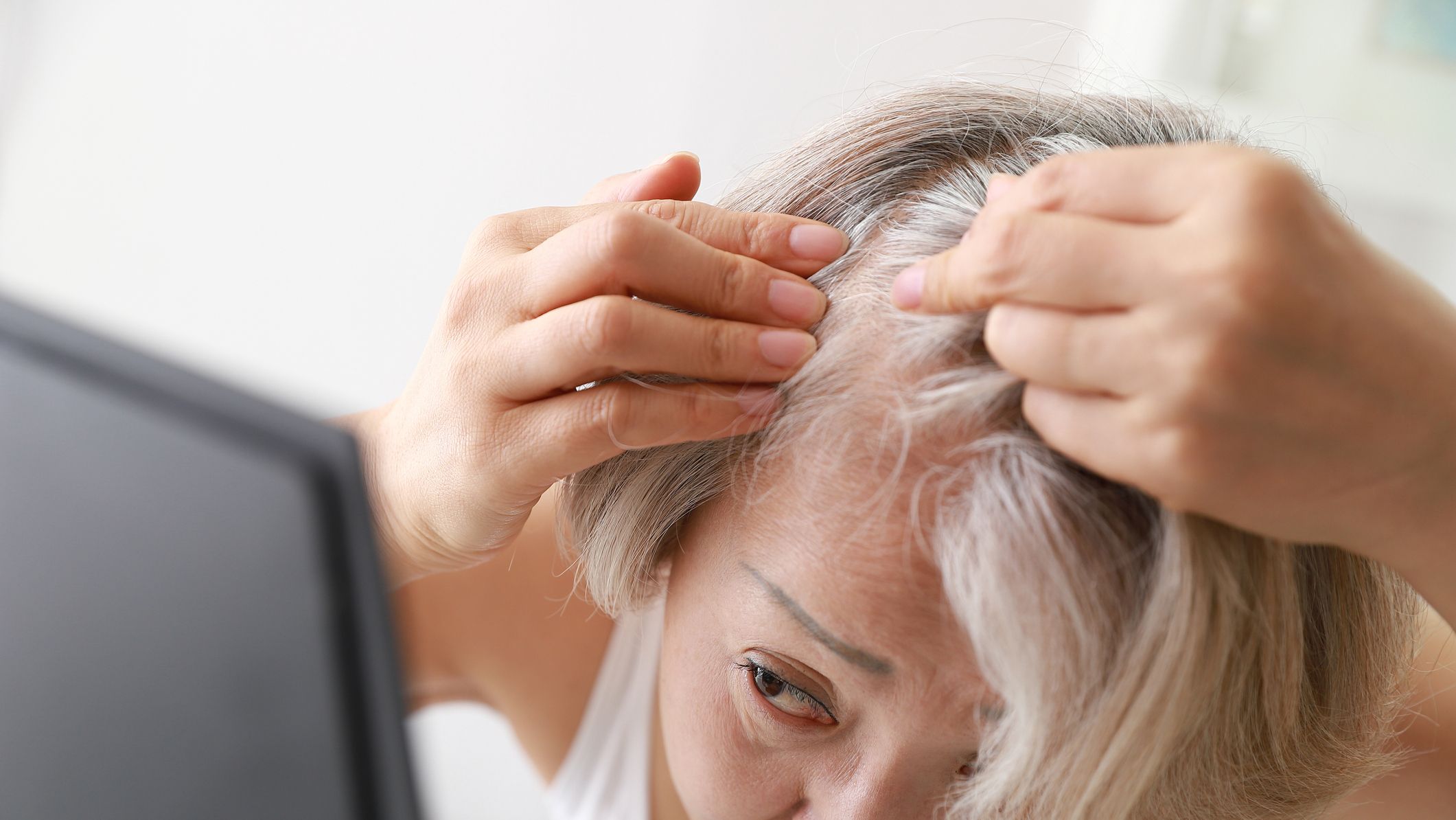
Credit: www.prevention.com
Frequently Asked Questions For Nutritious Food For Dandruff Or Sores
What Food Do I Eat To Get Rid Of Dandruff?
Include nutritious foods rich in healthy fats such as salmon, tuna, peanut butter, flaxseeds, olive oil, avocado, and walnuts to help get rid of dandruff. Coconut oil can also be beneficial when applied to the scalp as a home remedy.
Avoid consuming foods high in bad fats like chocolate and dairy, as they can worsen dandruff. Additionally, incorporate foods with vitamin B, green vegetables, protein, and whole grains into your diet. Remember that proper nutrition is essential for healthy skin and hair.
What Not To Eat When You Have Dandruff?
Reduce bad fats like chocolate and dairy, and add in foods with vitamin B, green vegetables, protein, and grains to combat dandruff. Coconut oil, baking soda, and probiotics can also help naturally reduce dandruff. Avoid milk for dandruff prevention.
What Is The Healthiest Way To Get Rid Of Dandruff?
The healthiest way to get rid of dandruff is by incorporating nutritious foods into your diet. Include foods rich in healthy fats like salmon, tuna, peanut butter, flaxseeds, and avocado. Adding coconut oil to your diet may also help. Additionally, using natural remedies like baking soda, probiotics, and certain oils can reduce dandruff.
Avoiding foods high in bad fats, such as chocolate and dairy, and adding foods with vitamin B and good oils, like green vegetables and grains, is recommended.
What Vitamins Are Good For Dandruff?
Vitamins that are good for dandruff include vitamin B (deficiency can cause dandruff) and vitamin E (helps prevent dandruff). Other beneficial nutrients are healthy fats found in foods like salmon, tuna fish, peanut butter, flaxseeds, olive oil, avocado, and walnuts.
Adding coconut oil to your diet may also improve dandruff. Avoiding bad fats like chocolate and dairy can help reduce oil production, which can worsen dandruff.
Conclusion
Incorporating nutritious foods into your diet can play a role in managing dandruff and sores. Including healthy fats such as salmon, flaxseeds, and avocado can help improve scalp health. Additionally, coconut oil has been used as a natural remedy for dandruff.
It’s important to note that poor nutrition can contribute to these issues, so it’s essential to avoid foods that can exacerbate oil production. Focus on consuming foods rich in vitamin B, green vegetables, protein, and grains to promote a healthy scalp and overall well-being.
Essential Nutrients For A Healthy Scalp| Incorporating Antioxidant-rich Foods Into Your Diet| Including Probiotics In Your Diet For Scalp Health| Anti-inflammatory Foods For Reducing Dandruff And Sores| Foods To Avoid For A Healthy Scalp| Meal Plan And Recipes For A Scalp-healthy Diet| Other Lifestyle Factors That Support A Healthy Scalp| Nutritious Food And Care For Dandruff|


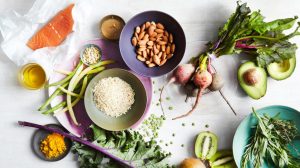
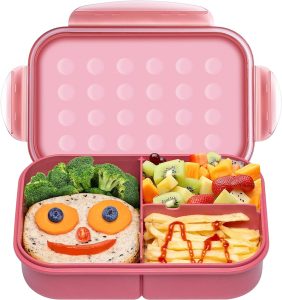
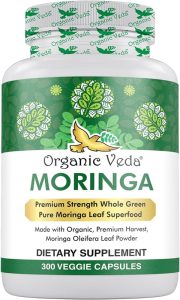

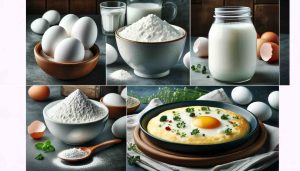



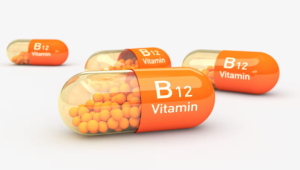



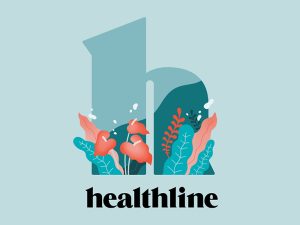
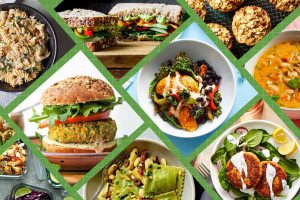
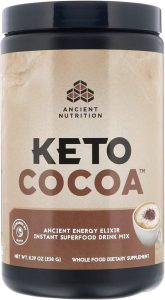
Be First to Comment